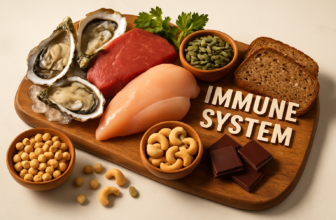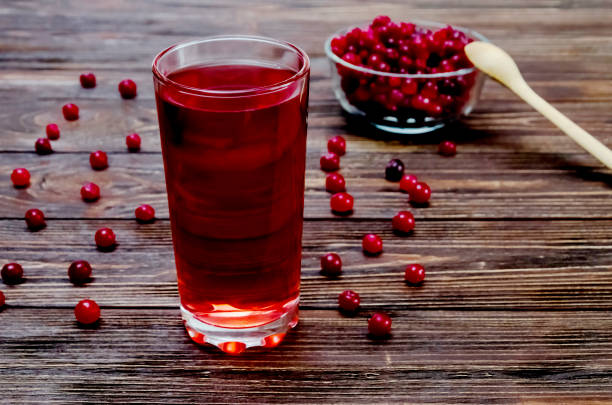
Picture this: you’re standing in the grocery store aisle, staring at rows of vibrant red cranberry juice bottles, wondering if this tart beverage could be the missing piece in your weight loss puzzle. You’ve heard whispers about cranberry juice’s health benefits, but does it actually help you shed those stubborn pounds?
Here’s the thing – the relationship between cranberry juice and weight loss isn’t as straightforward as many health blogs would have you believe. While cranberries themselves are nutritional powerhouses packed with antioxidants and beneficial compounds, the juice version tells a more complex story that might surprise you.
A glass of cranberry juice alongside fresh cranberries – but which one is better for weight loss?
If you’ve been sipping cranberry juice hoping it’ll magically melt away fat, you might be disappointed. But don’t click away just yet – there’s actually some fascinating science behind how cranberries affect your metabolism, blood sugar, and overall health that could indirectly support your weight management goals.
In this comprehensive guide, we’ll dive deep into the research, separate fact from fiction, and give you the honest truth about cranberry juice and weight loss. You’ll discover why the form of cranberry you choose matters enormously, what the latest scientific studies reveal, and how to incorporate cranberries into your diet in a way that actually supports your health goals.
The Cranberry Conundrum: Fresh Fruit vs. Juice
Before we tackle the weight loss question, let’s address the elephant in the room – there’s a massive difference between fresh cranberries and cranberry juice that most people completely overlook.
Fresh cranberries are incredibly low in calories, containing just 46 calories per cup (100 grams) [1]. They’re packed with fiber (4.6 grams per cup), which helps you feel full and satisfied. The fiber content is crucial because it slows down sugar absorption, prevents blood sugar spikes, and promotes satiety – all factors that can support weight management.
But here’s where things get tricky. Commercial cranberry juice is an entirely different beast. Most cranberry juices you’ll find in stores contain virtually no fiber and are loaded with added sugars [2]. A typical cup of cranberry juice cocktail can contain anywhere from 25-30 grams of sugar and around 110-140 calories – that’s nearly three times the calories of fresh cranberries with none of the beneficial fiber.
Fresh cranberries in their natural state – low in calories and high in fiber
Even “100% pure” cranberry juice presents challenges for weight loss. Pure cranberry juice is extremely tart and acidic, so it’s often diluted with other fruit juices or sweetened to make it palatable. This processing removes most of the fiber and concentrates the natural sugars, creating a beverage that can actually work against your weight loss efforts.
Dr. Marion Nestle, a nutrition professor at New York University, explains it perfectly: “When you juice a fruit, you’re essentially removing all the fiber and concentrating the sugars. You end up with something that behaves more like a soft drink than a health food in your body.”
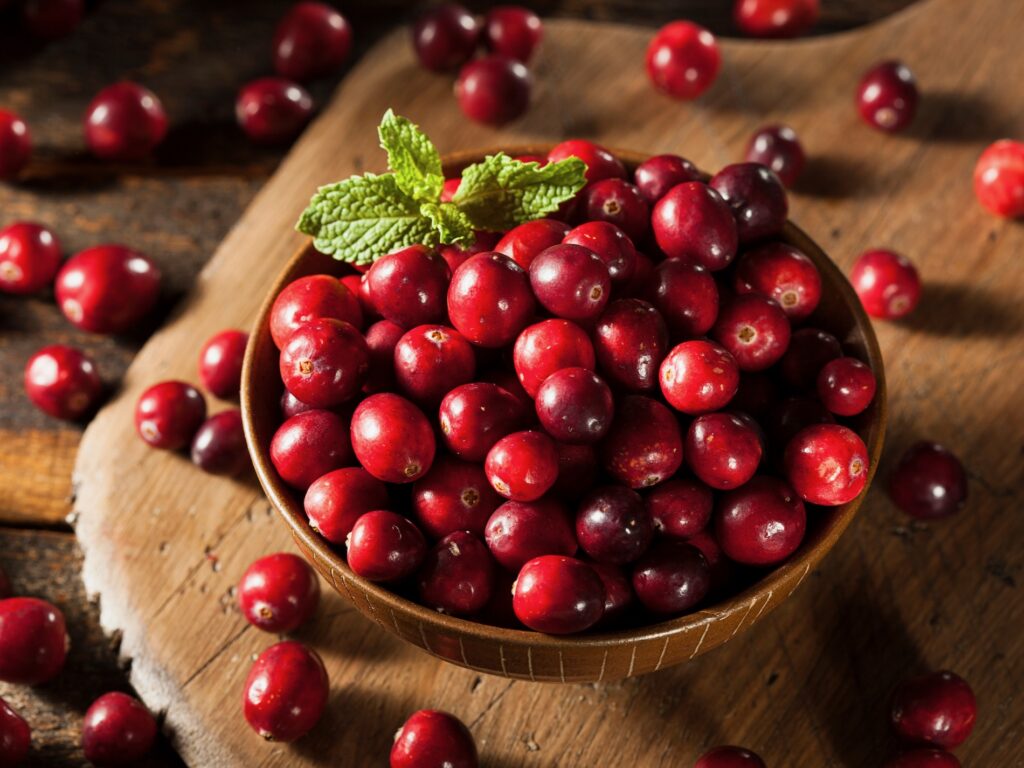
Raw Organic Red Cranberries in a Bowl
What the Science Actually Says About Cranberry and Weight Loss
Now, let’s dig into what peer-reviewed research tells us about cranberries and weight management. The findings might surprise you.
The Promising Research
A comprehensive 2016 review published in the Journal of Functional Foods examined cranberry’s effects on obesity and metabolic syndrome [3]. The researchers found that cranberry consumption could:
•Ameliorate insulin resistance and improve plasma lipid profiles
•Decrease diet-induced weight gain in animal studies
•Reduce visceral obesity (the dangerous belly fat around organs)
•Diminish blood markers of oxidative stress
These findings sound promising, but here’s the crucial detail – most of these studies used cranberry extracts or whole cranberries, not juice.
The Reality Check
A particularly eye-opening 2017 study published in Molecular Metabolism tested whether cranberry extract could reverse obesity in mice that were already overweight [4]. The results were mixed but telling:
The Good News: Cranberry extract completely reversed fatty liver disease, improved glucose tolerance, and normalized insulin sensitivity.
The Reality Check: The cranberry extract did NOT cause weight loss or reduce fat mass in the mice.
This study highlights a crucial point – cranberries may offer metabolic benefits that support overall health, but they’re not a magic weight loss solution.
Human Studies: The Missing Piece
While animal studies show promise, human research on cranberry juice and weight loss is surprisingly limited. Most human studies have focused on cranberry’s effects on urinary tract infections, heart health, and blood sugar control rather than weight loss specifically.
One notable exception is a study that examined reduced-calorie cranberry juice in people with metabolic syndrome [5]. The researchers found that while the juice improved certain health markers, it had no significant effect on body weight or waist circumference.
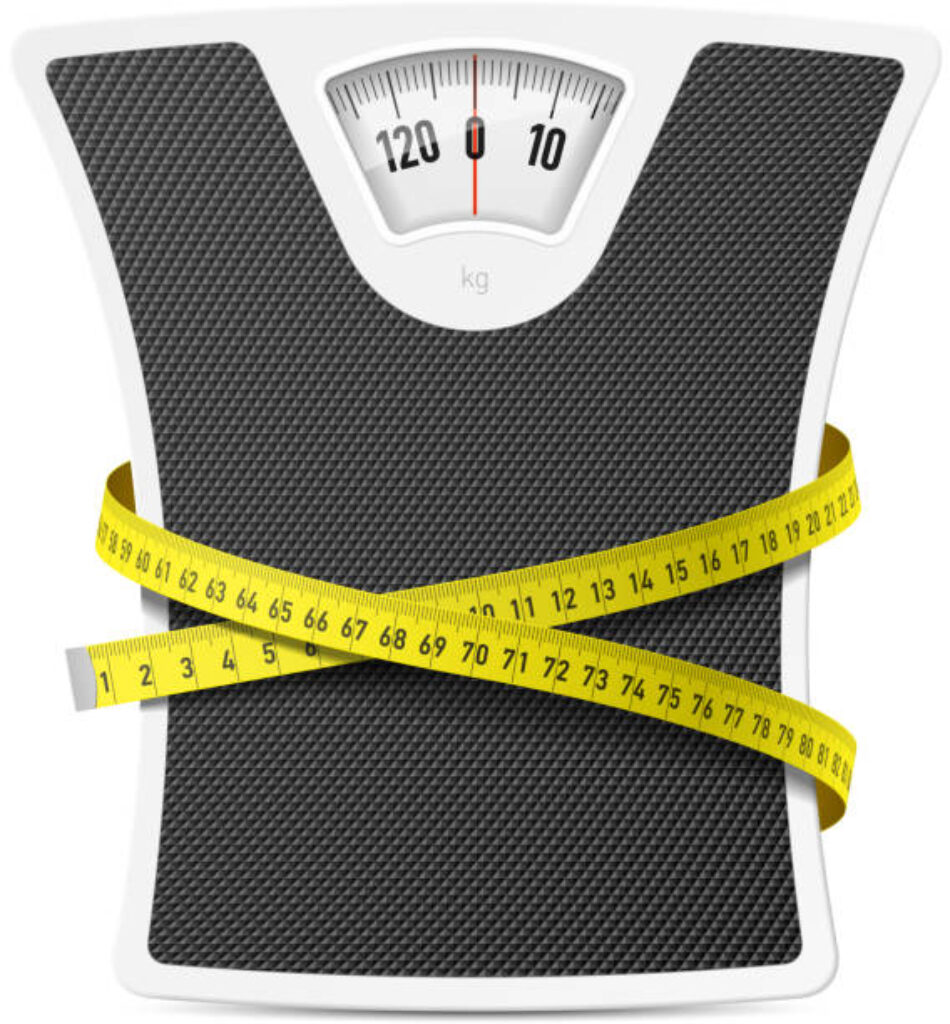
Vector illustration with transparent effect. Eps10.
The Calorie Math: Why Cranberry Juice Might Sabotage Your Diet
Let’s talk numbers, because when it comes to weight loss, calories matter – a lot.
If you’re drinking a cup of cranberry juice cocktail daily (which many people do), you’re adding approximately 140 calories to your daily intake. That might not sound like much, but over a year, those calories add up to about 14.6 pounds of potential weight gain if you don’t compensate elsewhere.
Weight loss requires a caloric deficit – and high-calorie beverages can quickly derail your efforts
Even worse, liquid calories don’t trigger the same satiety response as solid foods. Research consistently shows that people don’t compensate for liquid calories by eating less food [6]. This means that cranberry juice calories are essentially “bonus” calories on top of your regular food intake.
Dr. Richard Mattes from Purdue University, who has extensively studied liquid calories, notes: “Beverages have a weak satiety value. When you drink calories, your body doesn’t register them the same way it does solid food calories, leading to overconsumption.”
The Blood Sugar Rollercoaster
Here’s another weight loss concern with cranberry juice – its impact on blood sugar levels.
Commercial cranberry juice, even the “no sugar added” varieties, can cause significant blood sugar spikes due to their concentrated natural fruit sugars. When your blood sugar spikes rapidly, your pancreas responds by releasing insulin to bring it back down. This insulin response can promote fat storage and trigger hunger cravings shortly after consumption.
A study published in the American Journal of Clinical Nutrition found that beverages high in fructose (which includes many fruit juices) can lead to increased belly fat accumulation over time [7]. The researchers followed participants for 10 weeks and found that those consuming fructose-sweetened beverages gained significantly more visceral fat compared to those drinking glucose-sweetened beverages.
The Antioxidant Advantage: Where Cranberries Shine
Despite the challenges with cranberry juice for weight loss, cranberries themselves offer some remarkable health benefits that could indirectly support your weight management goals.
Cranberries are loaded with powerful antioxidants, including:
•Anthocyanins: These compounds give cranberries their red color and may help improve insulin sensitivity
•Proanthocyanidins: Unique compounds that may support gut health and reduce inflammation
•Quercetin: A flavonoid that may help reduce inflammation and support metabolic health
•Vitamin C: Essential for immune function and collagen production
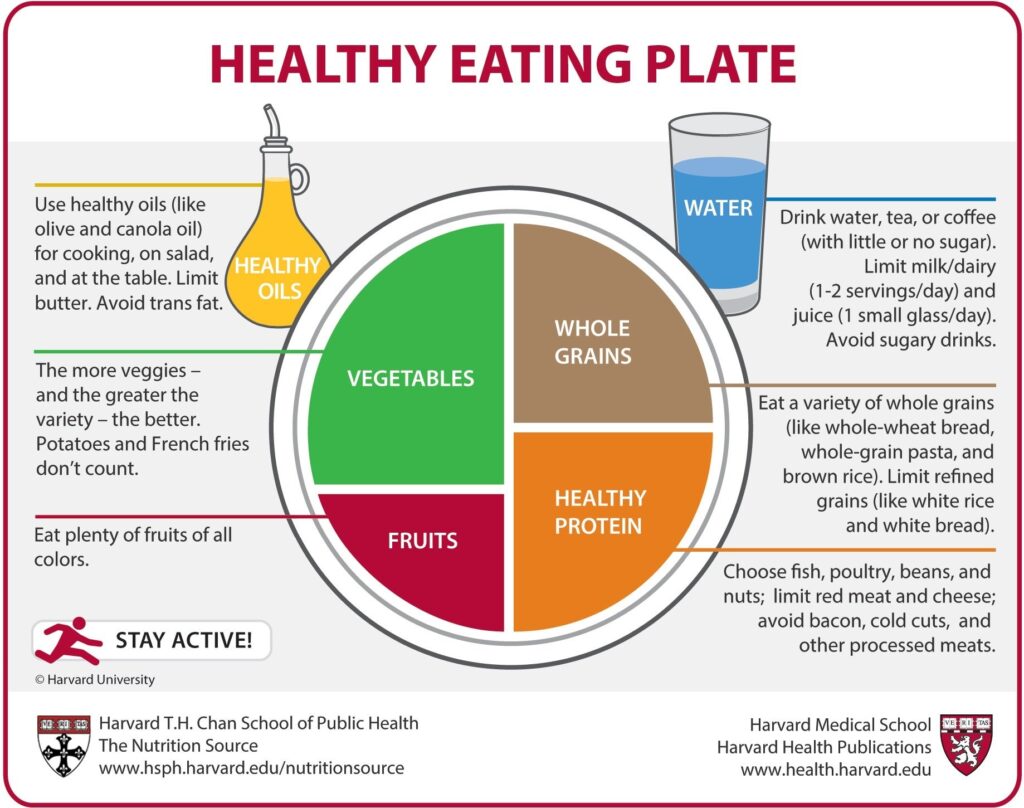
The complex relationship between antioxidants, gut health, and metabolism
The Gut Health Connection
Recent research has revealed fascinating connections between cranberry consumption and gut health, which could have implications for weight management.
A 2017 study found that cranberry extract promoted the growth of beneficial bacteria, particularly Akkermansia muciniphila, in the gut microbiome [8]. This bacteria is associated with better metabolic health, improved insulin sensitivity, and reduced inflammation – all factors that can support healthy weight management.
The gut-brain axis also plays a crucial role in appetite regulation and food cravings. By supporting a healthy gut microbiome, cranberries might indirectly help with weight management, though more research is needed to confirm this connection in humans.
The Inflammation Factor
Chronic inflammation is increasingly recognized as a major contributor to weight gain and difficulty losing weight. Inflammatory processes can interfere with hormones that regulate hunger and satiety, making it harder to maintain a healthy weight.
Cranberries’ anti-inflammatory properties could potentially help address this issue. The polyphenols in cranberries have been shown to reduce inflammatory markers in several studies [9]. By reducing inflammation, cranberries might help restore normal appetite regulation and metabolic function.
However, it’s important to note that these anti-inflammatory benefits are most pronounced with whole cranberries or concentrated extracts, not diluted juice products.
Smart Ways to Include Cranberries in Your Weight Loss Plan
If you want to harness cranberries’ potential benefits without sabotaging your weight loss efforts, here are some evidence-based strategies:
1. Choose Fresh or Frozen Cranberries
Fresh or frozen cranberries are your best bet. They’re low in calories, high in fiber, and contain all the beneficial compounds without added sugars. You can add them to:
•Smoothies (use sparingly due to tartness)
•Oatmeal or yogurt
•Salads for a tart crunch
•Homemade trail mix
2. Make Your Own Cranberry Water
Instead of buying cranberry juice, try making cranberry-infused water. Simply muddle a few fresh cranberries in water and let it sit for a few hours. You’ll get a hint of cranberry flavor and some beneficial compounds without the calorie overload.
3. Look for Low-Sugar Options
If you must have cranberry juice, look for versions with no added sugar and dilute them significantly with water or sparkling water. Even better, mix a small amount of pure cranberry juice with other low-calorie beverages.
4. Consider Cranberry Supplements
Cranberry supplements can provide the beneficial compounds without the calories or sugar. Look for standardized extracts that specify the amount of proanthocyanidins per serving.
5. Use Dried Cranberries Sparingly
While dried cranberries are convenient, they’re often loaded with added sugar and are calorie-dense. If you use them, stick to small portions and look for unsweetened varieties.
The Bigger Picture: Cranberries as Part of a Healthy Diet
Harvard’s Healthy Eating Plate emphasizes the importance of balanced nutrition for optimal health
The truth about cranberry juice and weight loss is nuanced. While cranberry juice itself isn’t a weight loss miracle, cranberries can be part of a healthy, balanced diet that supports weight management when used wisely.
The key is understanding that no single food or beverage will magically cause weight loss. Sustainable weight management requires:
•A caloric deficit (burning more calories than you consume)
•A balanced diet rich in whole foods
•Regular physical activity
•Adequate sleep and stress management
•Consistency over time
Cranberries can contribute to this bigger picture by providing antioxidants, supporting gut health, and adding variety to your diet – but only when consumed in their whole form or as part of a well-planned eating strategy.
Potential Risks and Considerations
Before adding cranberry products to your routine, be aware of these potential concerns:

Blood Sugar Impact
People with diabetes or prediabetes should be particularly cautious with cranberry juice due to its potential to spike blood sugar levels. Always consult with a healthcare provider before making significant dietary changes.
Kidney Stone Risk
Cranberries are high in oxalates, which can contribute to kidney stone formation in susceptible individuals [10]. If you have a history of kidney stones, discuss cranberry consumption with your doctor.
Medication Interactions
Cranberry products may interact with certain medications, particularly blood thinners like warfarin. The interaction can potentially increase bleeding risk, so medical supervision is important if you’re on such medications.
Digestive Issues
Large amounts of cranberry products can cause stomach upset, diarrhea, and digestive discomfort in some people. Start with small amounts to assess your tolerance.
The Bottom Line: Realistic Expectations
So, does cranberry juice help you lose weight? The honest answer is: probably not directly, and it might even hinder your efforts if you’re drinking the typical sugar-laden varieties.
However, cranberries in their whole form can be a valuable addition to a weight loss plan because they:
•Provide beneficial antioxidants and anti-inflammatory compounds
•Support gut health, which may indirectly benefit metabolism
•Are low in calories when consumed fresh
•Add variety and flavor to healthy meals
The key is choosing the right form of cranberry and having realistic expectations. Don’t expect cranberry juice to melt away fat, but do appreciate cranberries as part of a comprehensive approach to health and wellness.
Frequently Asked Questions
Q: Can I drink cranberry juice every day for weight loss?
A: Drinking regular cranberry juice daily is likely to hinder rather than help weight loss due to its high sugar and calorie content. If you want daily cranberry benefits, consider fresh cranberries, cranberry-infused water, or a high-quality supplement instead.
Q: What’s the difference between cranberry juice and cranberry juice cocktail?
A: Cranberry juice cocktail typically contains only 25-30% actual cranberry juice, with the rest being water, other fruit juices, and added sugars. Pure cranberry juice is 100% cranberry but is often still high in natural sugars and calories. Both can be problematic for weight loss.
Q: How many calories are in a glass of cranberry juice?
A: A typical 8-ounce glass of cranberry juice cocktail contains about 110-140 calories and 25-30 grams of sugar. Pure cranberry juice contains slightly fewer calories but is still calorie-dense compared to fresh cranberries.
Q: Are there any cranberry products that actually help with weight loss?
A: Fresh or frozen cranberries are your best bet, as they’re low in calories (46 per cup) and high in fiber. Some studies suggest cranberry extracts may have metabolic benefits, but more research is needed to confirm weight loss effects in humans.
Q: Can cranberry supplements help me lose weight?
A: While cranberry supplements may provide antioxidant and anti-inflammatory benefits, there’s no strong evidence that they directly cause weight loss. They’re best viewed as a potential support for overall health rather than a weight loss solution.
Q: Is it better to eat cranberries or drink cranberry juice?
A: Eating fresh cranberries is significantly better for weight management. Fresh cranberries provide fiber, fewer calories, and better blood sugar control compared to juice. The fiber helps you feel full and slows sugar absorption.
Q: How much cranberry should I consume daily?
A: There’s no established daily recommendation for cranberries. If you’re including fresh cranberries in your diet, a quarter to half cup daily is reasonable. For supplements, follow the manufacturer’s instructions and consult with a healthcare provider.
References
[1] U.S. Department of Agriculture, FoodData Central. “Cranberries, raw.” https://fdc.nal.usda.gov/fdc-app.html#/food-details/167762/nutrients
[2] Healthline. “Cranberries 101: Nutrition Facts and Health Benefits.” https://www.healthline.com/nutrition/foods/cranberries
[3] Kowalska, K., & Olejnik, A. (2016). “Beneficial effects of cranberry in the prevention of obesity and related complications: Metabolic syndrome and diabetes – A review.” Journal of Functional Foods, 20, 171-181. https://www.sciencedirect.com/science/article/abs/pii/S175646461500537X
[4] Anhê, F. F., et al. (2017). “A polyphenol-rich cranberry extract reverses insulin resistance and hepatic steatosis independently of body weight loss.” Molecular Metabolism, 6(12), 1563-1573. https://pmc.ncbi.nlm.nih.gov/articles/PMC5699918/
[5] Simão, T. N., et al. (2013). “Reduced-energy cranberry juice increases folic acid and adiponectin and reduces homocysteine and oxidative stress in patients with the metabolic syndrome.” British Journal of Nutrition, 110(10), 1885-1894. https://www.cambridge.org/core/journals/british-journal-of-nutrition/article/reducedenergy-cranberry-juice-increases-folic-acid-and-adiponectin-and-reduces-homocysteine-and-oxidative-stress-in-patients-with-the-metabolic-syndrome/4DF9E874A5F75C96E7FE3B9C57426F35
[6] WebMD. “Cranberry Juice: Health Benefits, Nutrition Info and Risks.” https://www.webmd.com/diet/health-benefits-cranberry-juice
[7] Medical News Today. “Cranberry juice benefits and side effects.” https://www.medicalnewstoday.com/articles/322731
[8] Very Well Health. “7 Health Benefits of Drinking Cranberry Juice.” https://www.verywellhealth.com/cranberry-juice-benefits-7481221
[9] Everyday Health. “5 Potential Health Benefits of Cranberry Juice.” https://www.everydayhealth.com/diet-nutrition/health-benefits-of-cranberry-juice/
[10] Signos. “Cranberry Juice: Health Benefits and Risks.” https://www.signos.com/blog/cranberry-juice-




